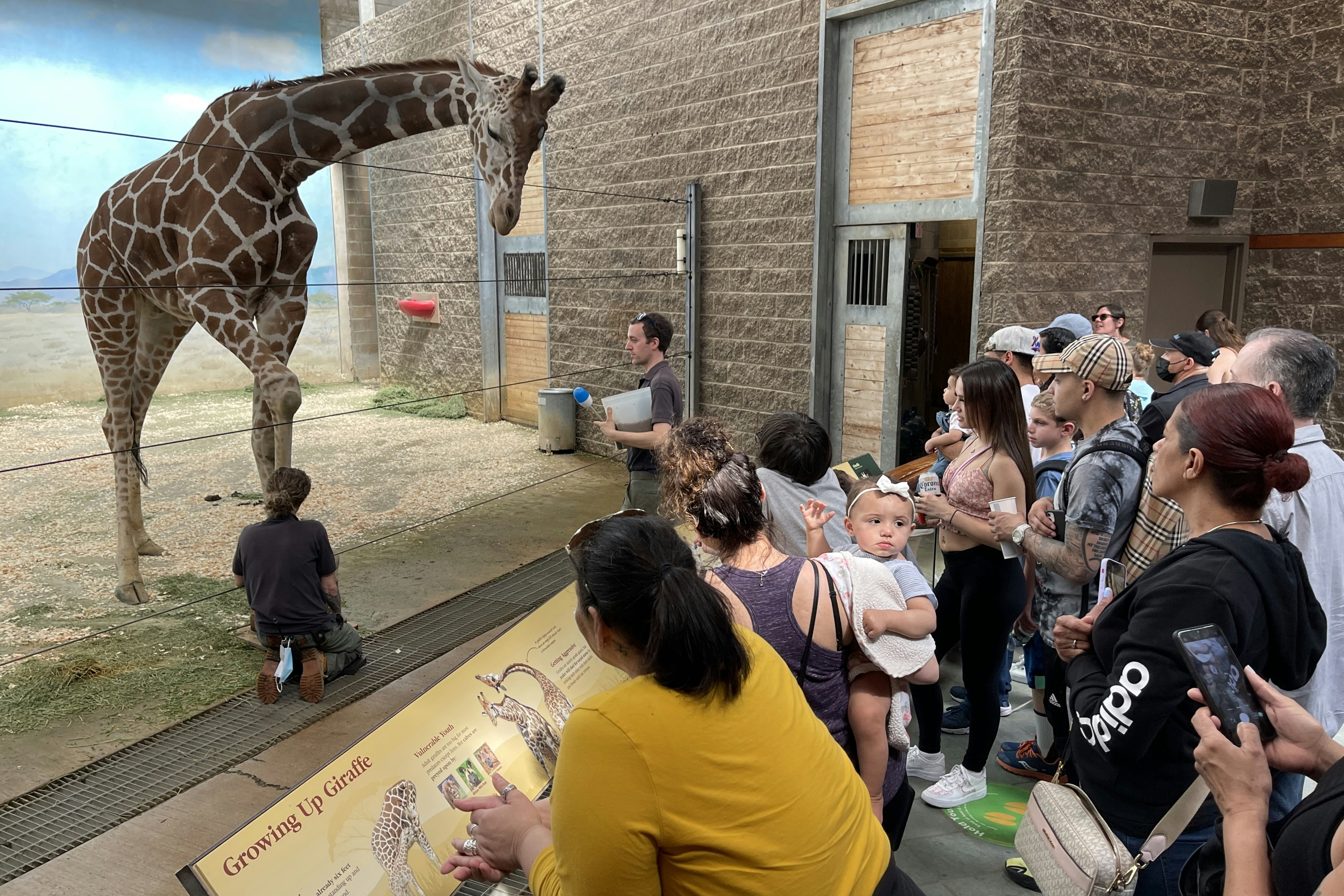
The dazzling new Gilder Center at the American Museum of Natural History © Alvaro Keding / AMNH
As you approach the American Museum of Natural History from Columbus Ave, the venerable New York institution seems to have sprouted a new set of cliffs.
Yet as you enter this swooping, sculptural structure designed by Studio Gang, you’ll find yourself in an atrium drenched with natural light. A massive staircase draws you up toward cave-like nooks on the upper levels, through which exciting discoveries lie in store. Classrooms on upper floors welcome students of all ages. A library with a single, stunning, tree-like column is open to general readers.
Welcome to the Richard Gilder Center for Science, Education and Innovation, the museum’s stunning, $465-million, 230,000-sq-ft new wing, sure to become a magnet for families from all over New York City – and the world.

Snazzy new exhibits fill this striking shell. An interactive video presentation, Invisible Worlds, explores how all life is interconnected from the molecular level on up; motion-activated projections make visitors themselves part of the story. Sure to gross out and thrill in equal measure, the Solomon Family Insectarium presents a few of the museum’s 24 million bug specimens – both living and taxidermied. You might be relieved that the giant Hercules beetle seems so docile, or inspired by the industry of the 500,000-strong colony of leaf-cutter ants performing their tasks in clear tubes that reach to the ceiling to connect their (glass-enclosed!) habitats.
Through an air lock, colorful creatures flutter around a plant-filled, very humid room: the Davis Family Butterfly Vivarium. Magnifying glasses on feeding stations allow budding entomologists to examine the patterns on the butterflies’ wings close up. Reports of wide smiles as butterflies alight on visitor arms, shoulders and heads are already widespread.

All over the new wing are glass cases arranged with treasures from the museum’s collection of 34 million objects – think displays of dozens of turtle shells, fish specimens preserved in formaldehyde, chunks of coral, even human-made ceramic vessels. Get a bit closer to the glass and you might see scientists at work, since collection-storage areas on the other side of the showcases are visible to the public. The Gilder Center makes the museum’s mission transparent – literally.
As jam-packed as all this sounds, what’s most striking about the new wing is how spacious it is, filled with wide-open spaces on every floor. Delightfully designed with no fixed purpose, such areas will let visitors play or rest, regroup or read.
And maybe even imagine a bit.

What are some other family-friendly STEM spots in New York?
Any parents with kids who might be into dinosaurs, whales, asteroids, elephants and/or bugs – which is to say, all of them – treasure AMNH as place to let little ones let off some steam as they learn. But it’s far from the only place in town for plenty of fun with a side of science education. If you need a break from the blue whale, take your little ones to one (or all!) of these institutions, located all over the city.
Queens County Farm Museum
Yes, it’s at the very fringe of the city limits – but, yes, there is an actual, real, working farm in New York City. Across the Queens County Farm Museum’s 47 acres, an orchard, herb garden, tractor rides and pens filled with pigs and goats give city kids a taste of the rural life.
New York Hall of Science
Follow the 100ft-tall rockets in Flushing Meadows Park to an interactive museum that makes science a joy. Exhibits like Design Space, Connected Worlds and Human Plus introduce core concepts of engineering, biology and even AI through hands-on interaction that’s sheer fun. Watch out for Nobel Prize winners to be.
Staten Island Children’s Museum
On the leafy campus of historic Snug Harbor, this gem of a museum offers exhibits and activities that educate and delight. Kids can “catch” oysters in the Sea of Boats, learn about the animal world in Pets & People, man a conveyor belt in House About It and much more. If they still have energy to burn, they can run around on the ample lawns outside, as parents relax in the shade.

Bronx Zoo
The grande dame of American zoos has been inspiring young naturalists for almost 125 years. Visitors of all ages will be hard-pressed to suppress their wonder as they encounter gorillas, tigers, giraffes, lemurs and many, many more species found on this historic 265-acre campus.
National Museum of Mathematics
Math isn’t just for brainiacs at this Manhattan museum. Here, hands-on exhibits bring advanced concepts to life: tossing basketballs introduces ideas related to statistics, a Möbius strip becomes a track for radio-controlled car, a “square-wheeled trike” offers an intriguingly smooth ride and more.







